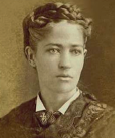MOTHERS OF INVENTION
When people try to name women scientists and inventors, they usually say ‘Marie Curie’ and then fall silent. But, in fact, many women invented things that have changed our lives. Here are just two.
Medical breakthrough
Nobel Prize winner In the 1940s, Dr Rosalyn Yalow was unusual—she had a career in science while being married with a family. She belongs to the elite group of people who have won a Nobel Prize.
Every day, everywhere Dr Yalow was the co-inventor of radioimmunoassay (RIA) and was awarded the prize in 1977. RIA is very important and is used in hospitals every day to analyse blood. It was developed in the 1950s by Dr Yalow and Dr Solomon Berson.
Easy to use Before RIA, blood analysis was expensive and difficult, involving large amounts of blood. The RIA test was much easier to perform, and doctors didn’t have to take much blood because only tiny amounts were needed. RIA is now used to diagnose diabetes, detect drug use and identify allergies, among other things.
Generous gift The method is also cheap because Dr Yalow and her co-inventor chose not to patent it and earn money from their invention. This meant it could be used by laboratories around the world without limitations.
Dishwasher progress
Hard work Dishwashers have been around for a surprisingly long time. In fact, the first dishwasher was patented by Joel Houghton in 1850. But it was hard work—you had to turn a handle. The dishes weren’t cleaned very well either. The dishwasher didn’t catch on.
“I’ll invent it!” In 1886, the first real dishwasher was invented by a rich American woman, Josephine Cochran. She often organised dinners for her friends at home, and dishes were often broken by her staff. When she discovered that a decent dishwasher didn’t exist, she invented one herself. Her servants didn’t need to wash up anymore.
Great success Her invention was successful and was shown at the 1893 World’s Fair in Chicago. Although Josephine’s dishwasher was bought by restaurants and hotels, domestic dishwashers didn’t become popular for another 70 years!
Life changing In the 1950s and ‘60s, the introduction of new home appliances allowed many women to go to work instead of doing housework. So, Josephine’s invention continues to have an impact on our lives today.

